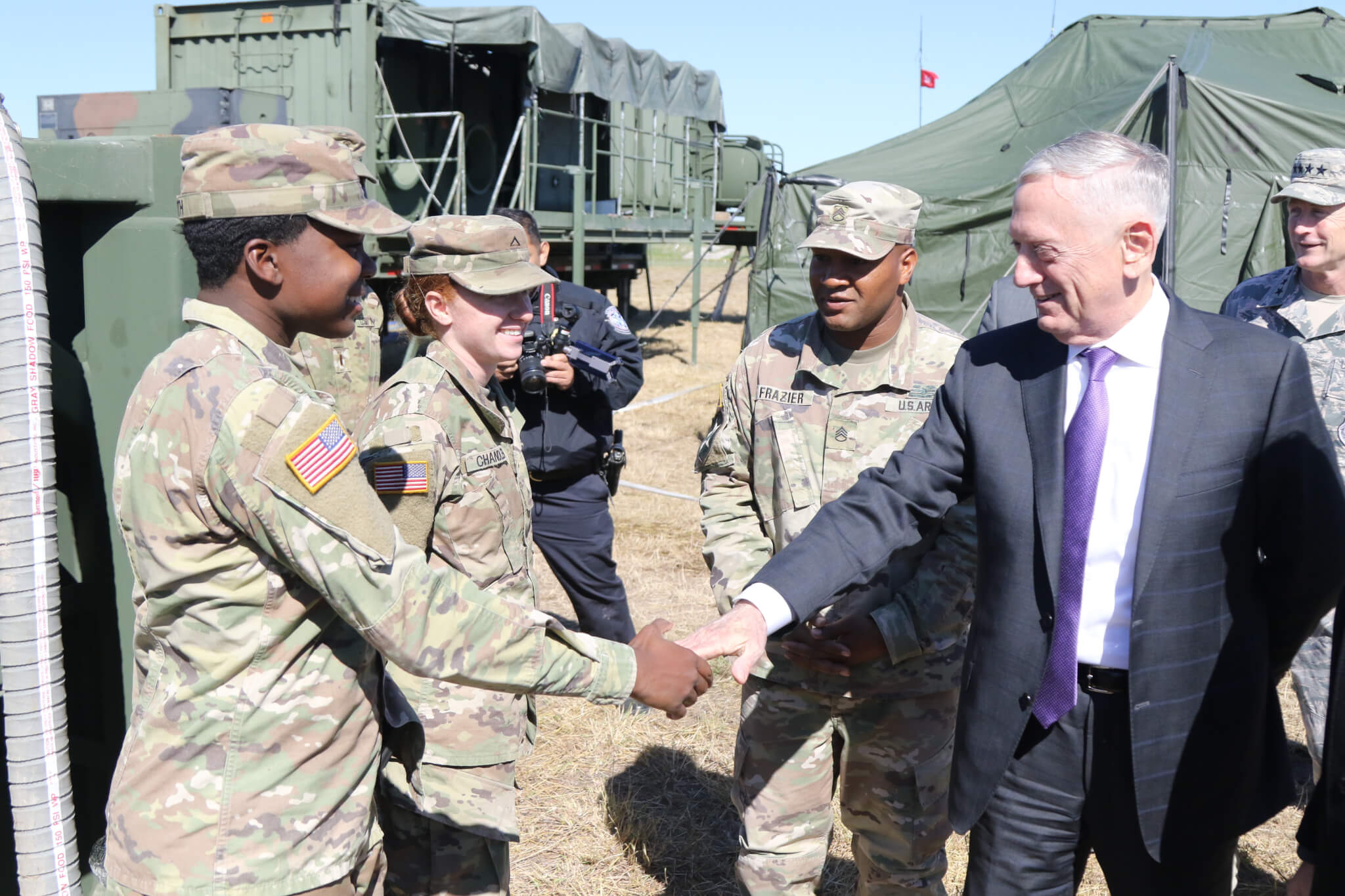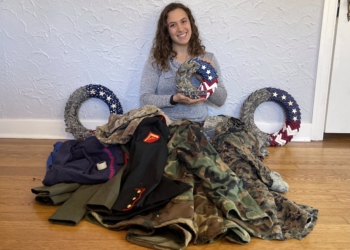Raised by the Vietnam generation of veterans, a Marine leader was born.
Retired Marine Gen. James Mattis grew up as a free-spirited teenager in the Pacific Northwest. In his new book, “Call Sign Chaos,” the longtime leader reveals a less-disciplined side of himself who faced troubles with the law, often getting into fights and hitchhiking to the next adventure. During the Vietnam era, he followed his brother into the Marines, though the original plan was to complete a tour and return to civilian life.
“Well, frankly, it was in the 60s. We thought the draft would be going on when we got out of college — I wasn’t doing very well in college — so my brother was in the Marines in Vietnam, I went down and joined, just to do my patriotic tour, serve a couple years and go back to the Northwest,” he said.
Service to country was a tradition where he came from and the Marines, specifically, had a certain appeal, but he admits there was never a conscious effort to make a lifelong career of it. Mattis says he was just enjoying what he was doing and who he was doing it with.
“There was a time when I said, yeah I’m going to stick around for a few more years, I’m really having the time of my life. … I decided at a rather young age in the Marines that I’d rather have crummy jobs at times — I grew to hate minefields and planning for breaching them, and that sort of thing — but I loved being around the kind of guys who would crawl into minefields … and that kept me going where I thought, I think I’ll do one more tour because they want to send me to school for a year; well, coming out of there, they’re going to send me to Hawaii for a couple years, and from there I went to Newport to be at the Naval Academy Prep School where I served under a former POW from Vietnam,” he said. “The Vietnam vet generation of Marines and sailors, soldiers, airmen raised me. Those were the guys I looked up to; they were the ones who taught us our rather grim skills.”
Observing NCOs

His leadership style began to take shape as a young lieutenant under his first platoon sergeants, stating those below him impacted him as much as those above him. Like all in the military, he says, you watch who you serve underneath because so much rests on how they lead — from mission accomplishment to “your own life.”
“My first platoon sergeant was an immigrant from British West Indies, Cpl. Wayne Johnson who was properly christened ‘Cpl. John Wayne,’ and he taught me it was as important what I did and what I said in my orders as what I did not say or did not do. My next platoon sergeant, Cpl. Manuel Rivera, an immigrant with a green card from Mexico, and Cpl. Rivera was a stern person in front of his troops, but at the same time he could be seen talking to one or two who were having challenges privately out in the field — almost like a big brother,” he said.
Though Mattis’ career spanned more than four decades with high-level billets, he sees his role as a second lieutenant in the infantry as a key timeframe because there was no buffer between him and the boots on the ground.
“You’re right in the mud with them; you’re living alongside them. You’re closer to them in many ways than your own brother, knowing their hopes and dreams and plans. And at the same time, the missions that come down to you, you have to turn that into action on the ground. It was a time where you had to have physical excellence — troops wanted to see that you could run as fast as them and do as many pull-ups,” he said.
And he said he places great value on slowing down to know everything about the people within your command by using three simple tactics: listening, learning, helping.
“They’re young, they make all the mistakes that we made, so you can help them on how they’re meeting the goals for themselves,” Mattis said. “As you get to understand your troops, they understand you. You’re trying to make certain they know that you care.”
Professional development
Gen. Mattis’ book recommendations
For sergeants: “At Peleliu and Okinawa” by E.B. Sledge
For senior officers: “Defeat Into Victory” by Field-Marshal Viscount Slim
Growing up, Mattis had an affinity for fiction books, like “The Last of the Mohicans” and “Treasure Island”. The Marine Corps’ expectations for professional development reading had a profound impact on his ability to develop wartime strategies, but it was a lesson learned the hard way. Mattis smirked as he recalled being restricted to his quarters for a weekend to do a book report after his battalion executive officer discovered Mattis was behind on his reading.
“I realized the Marine Corps was absolutely committed to professional development and that each of us had to take responsibility for our own development,” he said.
Years later, the reading paid off, he says, as he could “see what the enemy was doing and frankly, I didn’t care how brave they were or how many there were, I was going to stick a knife in their back. It was that simple because of the reading I was required to do.”
In addition to the foundation reading provides, Mattis also believes in the Confucian approach of body, mind and spirit when thinking about career progression.
- Physically: You must be at the top of your game, or the troops will not respect you if you’re not as strong or fast as your strongest and fastest troops.
- Mentally: You have to be sharp; you have to be able to turn what you learned into explanation to people.
- Spiritually: The spirit of your troops is a weapon; build up trust, but don’t let your passion for excellence overcome your compassion for them as human beings.
“Leadership is really determined by the eyes of the people you’re leading,” Mattis added.
Read comments










































